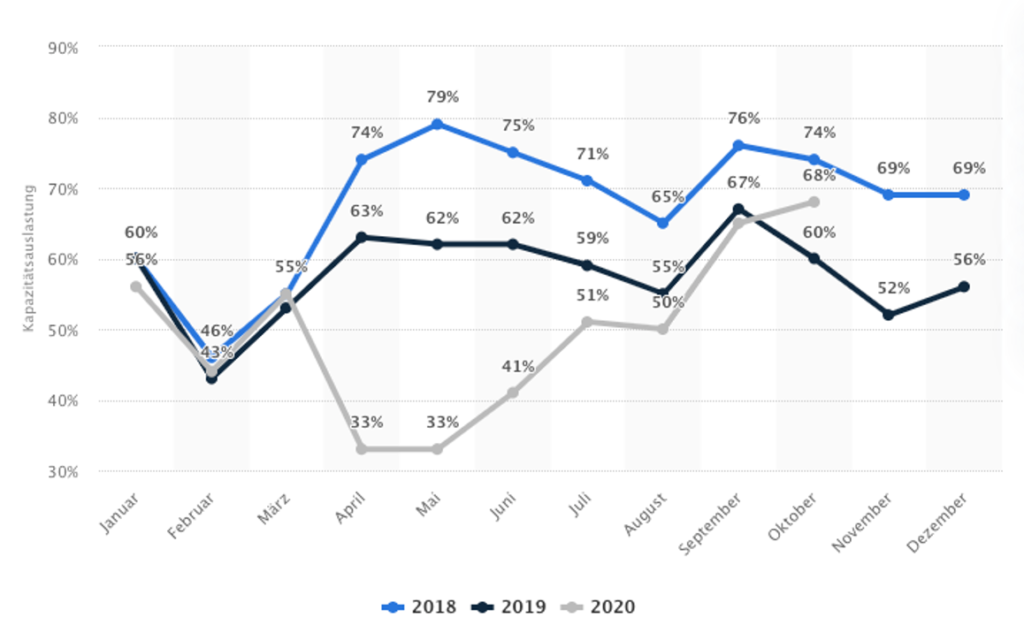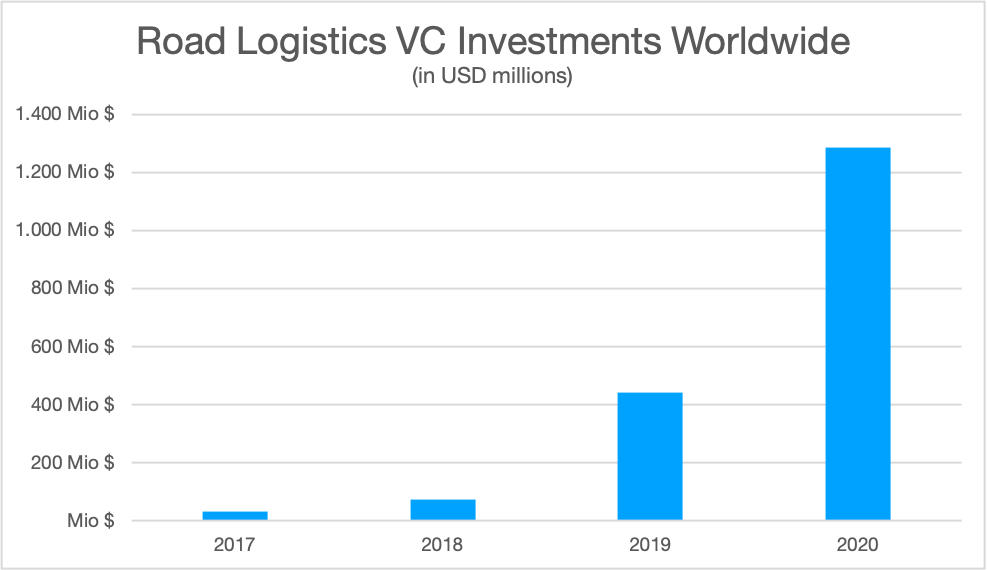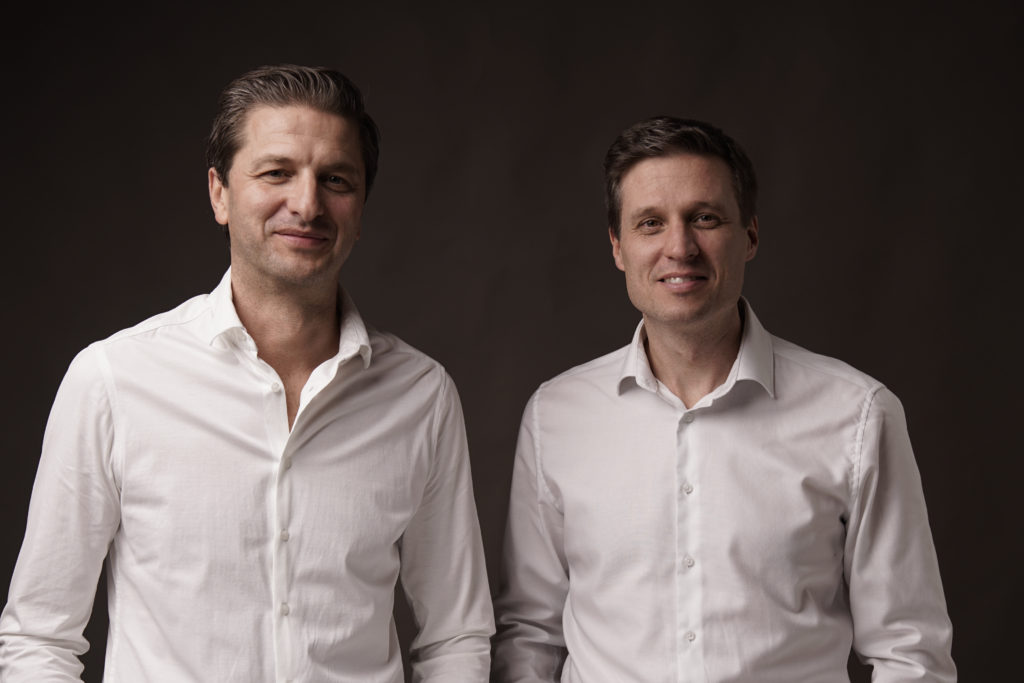Who are you and what do you do?
Robert Köbrunner: We are DIZZBO. In 2018, we founded this startup with the goal of revolutionizing logistics, namely with an online platform that automatically matches supply and demand in real time.
Peter Baumgartlinger: We launched in April 2019, and since then we have grown strongly in terms of revenue and orders, but have managed to remain as lean and efficient as we had planned due to the level of automation. After all, though, we are now 19 employees.
Behind every success is a mission. How did the idea come about?
Robert: In the logistics industry, you have to get by on very small margins. You talk about orders of magnitude like three to five percent EBIT margin. On the other hand, around 25 to 30 percent of truck capacity on the roads is empty. It was clear to us that this had to be changed, and that was the original idea behind DIZZBO: to make better use of existing resources and capacities. And save CO2 in the process.
How did the two of you come together?
Peter: We had been working together in various logistics companies for many years. At some point, we came up with the idea for DIZZBO. We took it to the owners of our employer at the time, Christian Fürstaller and Rodolphe Schoettel. Their reaction: Cool, let’s do it! However, we had to make one thing clear right away: we want to make the company, we as founders. We are looking for an investor, do you want to be part of it? That was quite a surprise for them.
How can you use the 30% empty capacity in road logistics and save massive amounts of money and CO2?
But you weren’t just managers in the logistics sector. Robert used to drive a truck himself.
Robert: Yes, exactly! I come from a transport company that my grandparents founded more than 80 years ago. So I grew up in this industry. And because you have to earn a little extra money when you’re a student, I drove a lot of trucks back then, also because I wanted to see how the life of a truck driver feels, what challenges he has to master every day. There are always problems in logistics. And truck drivers do an excellent job, you often don’t see that.
Was there a particularly crazy experience as a trucker?
Peter: My favorite story is applying for your first internship job.
Robert: Yeah, that was funny. I had an appointment for an interview as a management trainee in Hamburg at Kühne and Nagel. Instead of showing up as a classic applicant with a briefcase, I organized a truck with a load, drove up from Austria to Hamburg, and presented myself to Kühne und Nagel, complete with truck and load. When I also waived the travel expenses and pointed out that I would soon have to hand over the load and load a new one, Vorstand only consulted very briefly and then said, “Fits! You start with us.”
Our goal is to book a load fully automated on a matched truck with empty capacity. Without manual dispatching.
Let’s talk about unique selling points. You are not the first logistics startup on the market. How do you differentiate yourselves from Cargonexx, Sennder and the Instafreights of this world?
Peter: Our approach is that we not only digitize the order process via the website and individual additional logistics services, but all relevant processes within logistics. One special feature is our matching algorithm, which allows us to automate the entire process all the way to the driver and even to a truck that is already on the road. This allows DIZZBO to successfully market even partial loads. That is the huge difference.
Currently, DIZZBO is only known to market observers. You guys fly pretty much under the radar compared to other logistics startups. What is the reason for this?
Robert: We deliberately went down this path. We have developed a very broad and robust feature base in addition to the matching algorithm and in addition to a fully comprehensive transport management system. We have very good revenues. Now we can scale quickly from a very secure base.
Common question: how do 1,000 trucks driving around go together with sustainability?
Robert: By not needing 300 of the 1,000 at the end of the day, so you save 30 percent of the empty capacity.

How are you measuring your success at the moment? What are your KPIs?
Peter: The most important KPI is, of course, sales and that we are growing. But it’s also important to us that we don’t sink Gross-Profit money. In fact, we have doubled our gross profit margin in the last few months.
You create aggressive long-term goals by setting aggressive milestones. And do everything to achieve them.
How fast are you growing?
Robert: We’ve increased sales more than sevenfold from January to November, and we want to keep growing at that pace.
Great! And this is already the second year. You started in March 2019.
Robert: Exactly. In the first three months, we had a beta testing phase. By the end of 2020, we’re 18 months into operations.
Peter: In January 2020, we had just under 150,000 euros in sales per month and are now heading for seven-figure monthly sales.
How do you manage this extreme growth? How can you increase your revenue by 600% in 10 months?
Robert: We have always set ourselves extremely aggressive milestones – hardly achievable goals – and have done everything we can to reach them. First you want 50,000 sales per month, then 100,000, then 250,000. Then half a million monthly sales. Now we’re at one million per month, next year we’re aiming for 35 million in annual sales, and in 2022 we want to achieve a hundred million. These milestones are really fun for me, and with them you also achieve ambitious long-term goals.
Peter: We also have a precise medium-term plan for how we’re going to scale up. We know pretty much exactly when we’re going to hire teams in sales, IT, administration, support, and where we’re going to deploy them.
How did you manage to get the platform up and running so quickly?
Robert: We got the platform live from the start of development in a little over six months. For us, working with Scrum was new. In the meantime, I’m an absolute fan. The interesting problems always come in live anyway. In this respect, it was absolutely the right way to set up the project together with our development partners RAIN and BIG PICTURE in an extremely agile and MVP-driven way.
You have to stay agile in software development. But at the beginning just as much with the business model. You have to turn it around extremely quickly if it doesn’t work.
Have you had to pivot your business model?
Peter: Yes! You also have to stay agile with the business model. We had to learn that the basic idea was and is right, but the original path we took to get there didn’t work. Technically, it worked, but we had underestimated the market component. First, we wanted to secure the loading area for the payloads and then look for customers for it. It turned out to be difficult. We had to turn the model around exactly once: Now we focus on the cargo and then the cargo area simply follows. That’s what we had to learn. You always face obstacles as a startup. You have to overcome them, and there are different ways. Either you take a ladder, in other words – you get a lot of money. Or you overcome them with ideas and perseverance. We chose an intermediate path, a little bit of ladder, a little bit of head, and thus reached our goal. I am very proud of that.

Are freight forwarders afraid of breaking up established processes?
Robert: Many customers are already open to new solutions. Corona even helps a bit here. Because you have to follow this saving idea also in logistics and look for new solutions. This benefits us. In the area of traditional forwarders, however, it is sometimes difficult. At the moment, they don’t see the role they could play in the future.
What are you missing most in the current situation?
Robert: We have a massive bottleneck in developers right now. We have good, finished ideas in the drawer, but we can only work through them sequentially. First you found and program a platform, which then runs quite well, but then there are many other business areas that you also have to consider. That’s what we’re working on right now. So that customers have a really great shopping experience and good conditions on a perfect platform.
Peter: We are also looking for investors again starting next year.
Where will you be in two years?
Peter: In two years, we’ll be at 100 million in annual sales, that’s our plan. Operationally, we perform well and enjoy what we do every day.
Robert: It is important to us that we also establish ourselves in the market as a technology company. We don’t want to be a digital freight forwarder, but a technology company that offers a platform solution. So we want to think of a completely new business model.
We can also transport huge drones to Spitsbergen.
What was the craziest transport you handled?
Peter: One of our customers had a transport to Spitsbergen, a large drone for scientific purposes worth 1.5 million. That was a special transport on seven loading meters, also by ship and with a snowmobile to the final destination. We even had to postpone the transport again because there were ice floes and the ship couldn’t get through. Otherwise… Of course, one of the first shipments was also the most beautiful for me. The customer was a German medium-sized company. I was sitting at the table talking to the contact person there, showing and explaining everything. Then I go to the car, get in and drive away. Then Robert calls me and says, “Hey, she’s booked. And then I knew: Hey, it works.
Imagine you can win a lunch with any person: Who would you have lunch with?
Peter: When the Lockdown is over, I would love to have lunch with my wife again.

The interview was conducted by Hoa Le and Maximilian Vogel, edited by Kirsten Küppers.
More articles about DIZZBO
Logistik-Startup Dizzbo erweitert Seed-Runde um Millionen (Businessinsider)
Jochen Wolf, warum ist Corporate Innovation Building so unglaublich schwer? (hive)
Dizzbo erhält Verstärkung und mehr Geld (Deutsche Verkehrszeitung)
Mehr Geld für DIZZBO (Logistik-heute)
Dizzbo sammelt Millionensumme ein (deutsche-startups)
Exklusiv: Berliner Matching-Plattform für LKW und Fracht sammelt Millionen ein (Gründerszene)
Dizzbo will nicht ausgelastete LKW füllen (Deutsche Verkehrszeitung)
Start-Up of the Year at Transport Logistic (logmore)
start.hub logistics: Einen Gewinner gibt es bereits (blue-rocket)
Digitalspezialist RAIN bringt Realtime-Logistikplattform für das Startup DIZZBO an den Start (RAIN)
RAIN startet Realtime-Logistikplattform für DIZZBO (onetoone)
Disclosure: BIG PICTURE is an investor of DIZZBO GmbH and has technically developed the DIZZBO platform with its venture building unit RAIN and supervises its further development.